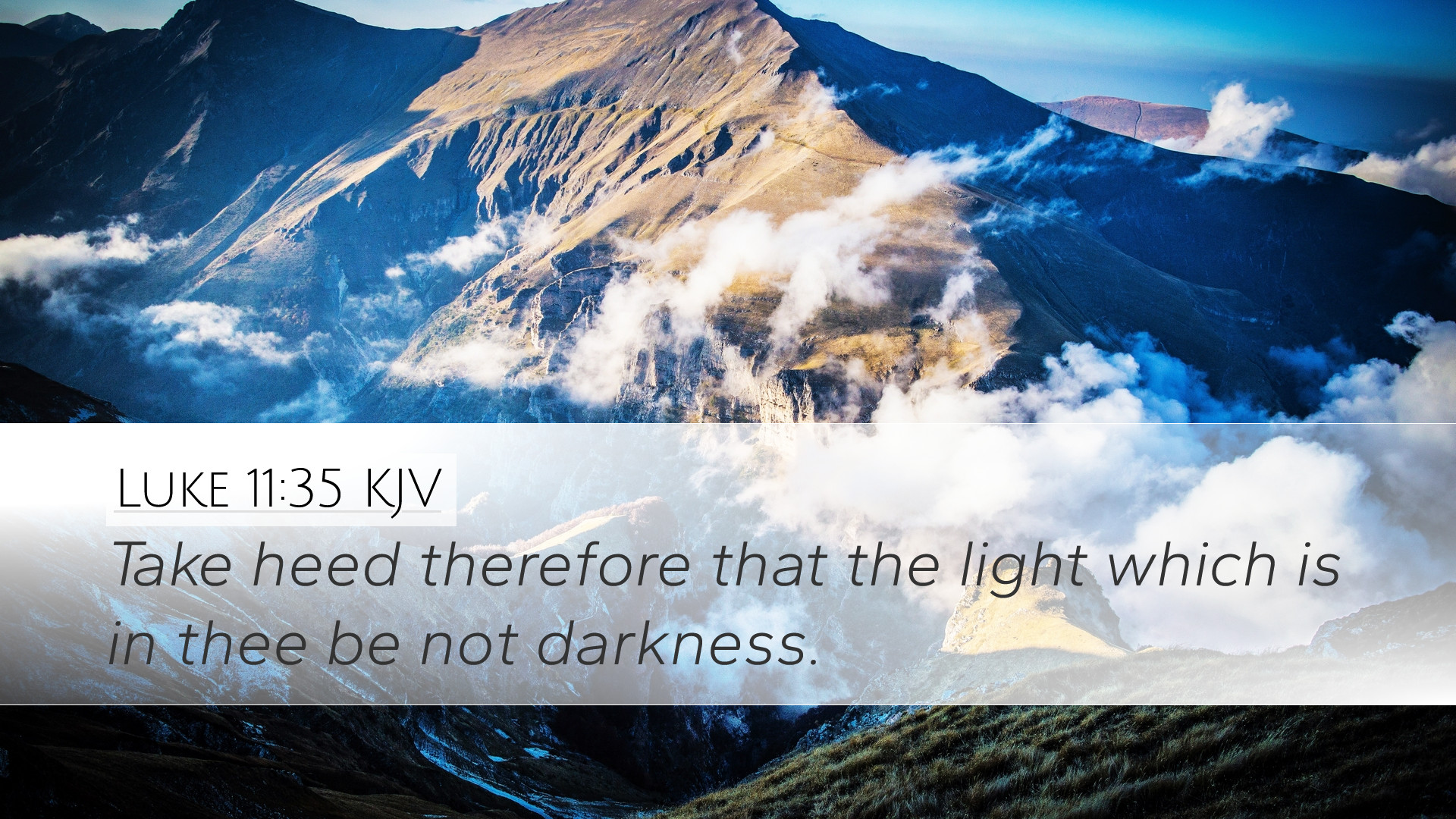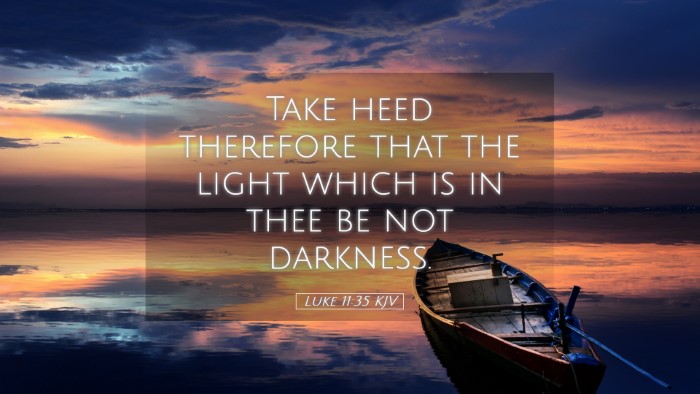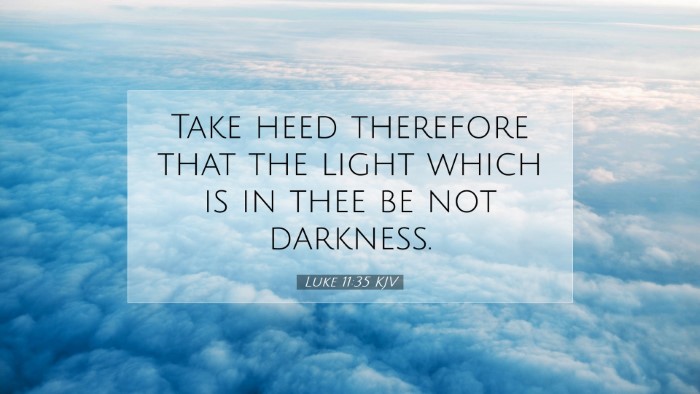Commentary on Luke 11:35
Luke 11:35 states: "Take heed therefore that the light which is in thee be not darkness." This verse serves as a poignant reminder of the significance of our spiritual perception and the necessity of an accurate understanding of the divine light. In the following commentary, we will explore this verse through the insights of various public domain commentaries.
Introduction to the Theme of Light and Darkness
This verse is embedded in a broader dialogue regarding the nature of spiritual illumination versus darkness. Light, in biblical terms, often symbolizes truth, righteousness, and the presence of God, while darkness represents ignorance, sin, and separation from God. The implications of this verse emphasize the critical need for self-examination and awareness of one's spiritual condition.
Insights from Matthew Henry
Matthew Henry provides profound insights into the implications of light and darkness in one’s life. He notes:
- The Nature of the Light: Henry suggests that the 'light' within each individual may refer to their understanding and disposition towards divine truth. It is essential to discern whether this light is indeed genuine.
- Self-Examination: The exhortation to 'take heed' is a call for introspection. Henry highlights that a person must examine their own heart and beliefs, ensuring they are not mistaken in thinking they possess light when they might only be surrounded by the darkness of false understanding.
- Consequences of Blindness: When one believes they possess spiritual light but are, in fact, engulfed in darkness, they are at risk of leading themselves and others astray. Henry warns that such self-deception can profoundly impact one's spiritual journey.
Insights from Albert Barnes
Albert Barnes echoes and expands on the theme of light in this verse:
- Understanding True Light: Barnes asserts that the 'light' refers to knowledge and the attitude of the heart towards God. True awareness of God’s truth leads to genuine righteousness.
- The Danger of False Illumination: He emphasizes that it is possible for people to be misled into thinking they are enlightened when in reality they are in spiritual darkness. He stresses the importance of discerning the source of one’s light.
- Application to Believers: For believers, this serves both as a warning and an encouragement; believers must consistently seek the true light that comes from Christ, as the alternative leads to darkness, folly, and potential moral failure.
Insights from Adam Clarke
Adam Clarke brings additional dimensions to this scripture by focusing on the practical implications:
- The Light Within: Clarke notes that the 'light' within may refer to conscience and moral judgment. It is a manifestation of God’s law written on our hearts, which can either guide us rightly or become distorted.
- Importance of Clarity: He argues that clarity of understanding is paramount. If a person operates under a false sense of enlightenment, they inevitably walk in darkness, which leads to confusion and moral compromise.
- Spiritual Vigilance: Clarke underlines the necessity of being vigilant in one’s spiritual life, reiterating that vigilance is key to ensuring that what one perceives as light is consistent with the truth of God’s Word.
Theological Implications
The implications of Luke 11:35 reach deep into the heart of Christian theology. The interplay between light and darkness underscores several key theological concepts:
- Illumination by the Holy Spirit: The Holy Spirit plays a fundamental role in illuminating the believer's mind and heart, guiding us towards true understanding and discernment.
- The Nature of Sin and Deception: This verse reminds us of the propensity for human beings to deceive themselves about their spiritual condition. It calls for a robust theology of sin which acknowledges the reality of self-deception.
- Christian Responsibility: Believers carry the responsibility to not only seek the light but also to reflect it to others. Engagement with Scripture and community becomes essential in living out this call to light.
Practical Applications
For pastors, theologians, and students alike, this verse prompts several practical applications:
- Encouragement of Self-Reflection: Regular self-assessment should be part of spiritual disciplines. Engaging deeply with Scripture should illuminate our understanding of our own hearts.
- Community and Accountability: Involvement in a faith community offers a platform for accountability and encourages collective discernment of truth.
- Consistent Pursuit of Truth: Ministers should ensure their teachings foster clarity and understanding of God's Word, guarding against misleading interpretations.
Conclusion
Luke 11:35 serves as a powerful reminder of the importance of being vigilant regarding our spiritual perceptions. This verse challenges us to ensure that the light within, which guides our thoughts and actions, represents true illumination from God rather than a deceptive darkness. Through the robust insights from Matthew Henry, Albert Barnes, and Adam Clarke, we are urged towards authenticity in our faith, constant self-examination, and a commitment to the light of Christ in all aspects of our lives.


